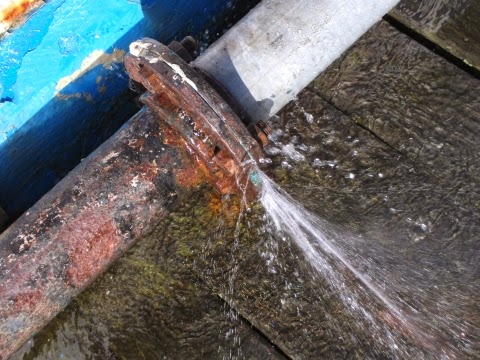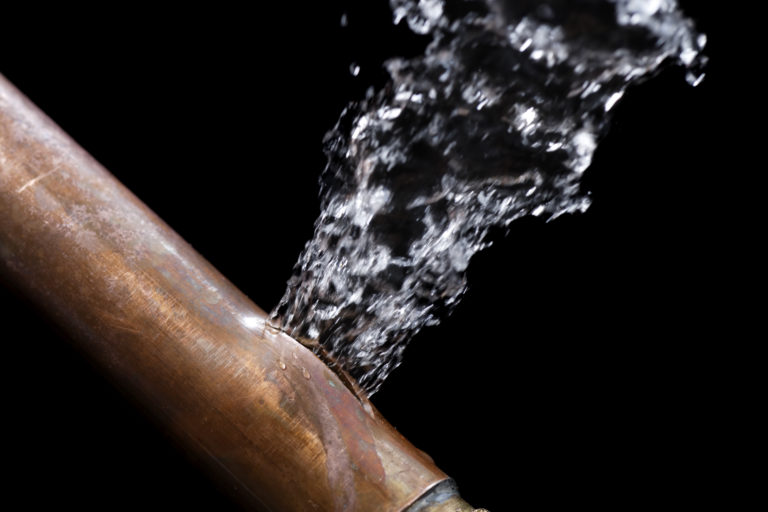Addressing Water Damage Due to a Leaking Water Pipe - Expert Advice
Addressing Water Damage Due to a Leaking Water Pipe - Expert Advice
Blog Article
We've stumbled on the article on Do s And Don ts For Homeowners Managing With Water Damage directly below on the net and think it made perfect sense to talk about it with you on this page.

What should you do if a water pipeline ruptureds in your residence? The longer you wait, the extra extreme the damages that can occur to your home. For these reasons, you need to discover how to act in the occasion of a ruptured water pipe.
Shut Off the Key Waterline Shutoff
Look for the local shut-off shutoff to turn off the water in one specific location only. If you do not recognize where the localized shut-off valve is, go for the primary water line shutoff and also transform it off. Normally, the major valve is located outside the house next to the water meter.
Call Water Damages Restoration Pros for Aid
After closing the water resource, call the experts for assistance. With their professional assistance, you can avoid a lot bigger water damages including warped walls, loose tiles, or damaged frameworks.
Paper the Damage For Insurance
While you're awaiting the pros to show up, get some documentation of the damages triggered by the errant pipe. Take pictures and video clips of every little thing. Do close-up shots of the damaged valuables as well as places. Your paperwork will certainly function as proof for your homeowner's insurance. Maintaining proactive with this situation aids you to sue for insurance coverage, which will certainly better support you and also your household to get back on your feet.
Salvage Things That Can Be Saved
As soon as you're done taking images, examine the damaged products and also obtain the most important ones from the stack. Dry them off in a dry/warm place away from the damaged area and attempt to preserve them as high as you can. Drag as much dampness as you can to the material so it can begin to dry.
Start the Drying Process
The good news is, the water from your waterlines is already clean so you don't have to worry about sewage system water. The streaming water might have disturbed the dust and particles in your floorboards as well as carpets. Blot out as much water as you can from the surfaces with old towels.
Specialists are the only individuals certified to analyze appropriately as well as take care of the burs pipes and succeeding damages. They typically give silent red flags like bubbling paint, water discolorations.
What should you do if a water pipeline bursts in your home? For these factors, you require to learn just how to act in the event of a burst water pipeline. After closing the water resource, call the experts for help. With their specialist assistance, you can protect against much larger water damages including warped walls, loose floor tiles, or harmed structures. Thankfully, the water from your waterlines is already clean so you do not have to fret regarding sewer water.
Water Pipe Burst: Steps You Need to Take Now
Freezing Temperatures
If you live in a climate where temperatures drop below freezing, be aware of the heightened potential for pipe problems.
When temperatures drop, the water inside your pipes may turn to ice. As more water trickles in, the frozen area grows and the frozen water expands.
Over time, the pressure may be too much. Bonds in the pipe weaken and cracks form. When the ice finally melts, the temperature change can shatter both the ice and the surrounding pipe. If the pressure is strong enough, the pipe bursts.
Rust and Corrosion
Corrosion is another common cause of burst pipes. Rust and corrosion build up inside pipes, especially in older homes and in areas where water has a high iron content.
Over time, the corrosion weakens pipes, leading to an increased chance of a burst. Steel pipes are especially susceptible to rust.
To prevent rust and corrosion, replace steel pipes with plastic or copper. These types of pipes tend to resist corrosion longer.
Tree Roots
When trees around your home grow taller, their roots grow downward and outward, too. Sometimes, roots come in contact with water pipes.
In a battle between tree roots and pipes, the roots usually win. As roots continue to grow and press against the pipes, the pipes crack, leading to leaks.
To keep roots from encroaching, be sure to plant trees far from your water pipes. Choose slow-growing tree varieties that have small root balls.
If trees are already encroaching, you may try to add a physical or chemical barrier to prevent roots from accessing pipes.
Clogs
You already know that clogs can back up your sink and shower drains. But did you know that they can lead to burst pipes, too? A clog can cause water pressure to build up behind it, especially if it s deep within the system.
That s why it s important to be mindful of what gets poured down the drain, goes into the garbage disposal, and flushed down the toilet. Limiting drains to water and approved materials can help prevent deep clogs.
What Happens When a Water Pipe Bursts?
Speaking of water damage, what happens after a water pipe burst? The bad news is that, if left unrepaired for too long, a burst pipe can result in serious damage to your home.
First, there s mold growth. After just three days, mold and mildew can start to grow. Mold loves dampness; if the water sits too long or areas don t get thoroughly dry, mold can take over.
Mold exposure has been linked to respiratory problems. It s especially bad for those with allergies or asthma, as it can exacerbate both issues.
If you want to sell your home, mold can really throw a wrench in your plans. It s important to prevent the growth of this toxic substance.

We had been made aware of that report about What You Should And Shouldn t Do When Dealing With Water Damage from a friend on our other domain. Enjoyed reading our blog posting? Please share it. Let another person find it. Thanks for going through it.
Free Quote Report this page